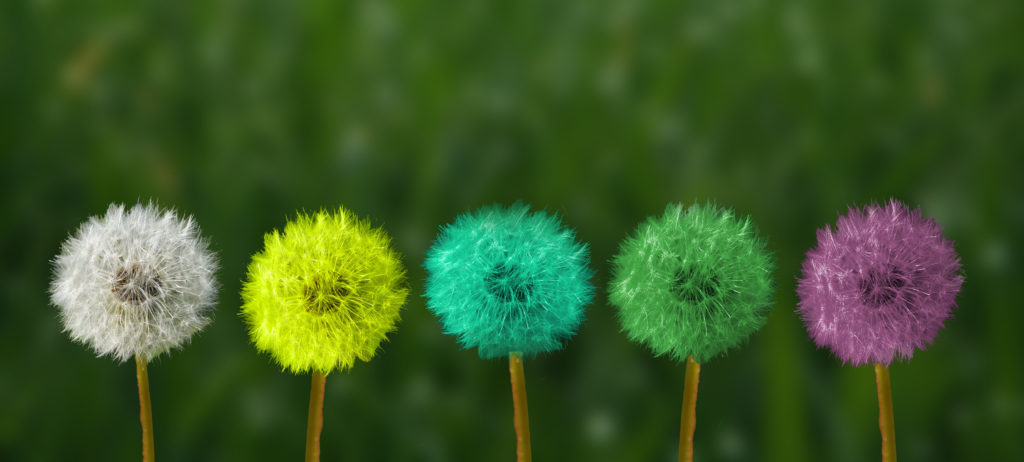How mindfulness helps with developing patience

“Patience is a virtue.” If you’re anything like the old me, you probably heard this saying and added “unattainable” before “virtue.” Let’s admit it, patience is difficult to practice. We are used to getting what we want when we want it, nowadays more than ever. With a touch of a button or a voice command, we can have pretty much anything in a matter of days, hours, even minutes: prepared food, clothes, and grocery; our private ride picking us up; music, books, and movies available on demand; we can even meet strangers with a swipe. Everything is right there for us to grab whenever we want it. The convenience is bigger than ever. But it also comes with a downside, which is that it makes us even more impatient. The good news is, mindfulness helps with developing and improving patience, as we will see in a bit.
Impatience seems to come more naturally to people. I guess that’s just how we’re wired. We imagine, we taste, smell, see, hear, touch, and we want it right there & then. And if that’s how we’re programmed, becoming patient takes some practice.
Thinking about my experiences, for most of my life, I tried to avoid practicing patience altogether and instead tried to take control of things. When I wanted something, I took matters into my own hands and did my best to make it happen. Sometimes it worked, sometimes it didn’t, but just the fact that I was doing something — acting on it — made me less impatient. If it worked out, I would prove to myself that I didn’t have to be patient and that I could simply act. If it didn’t work out, I would tell myself that it wasn’t meant to be. I never thought that had I only been more patient, maybe things would have worked out after all.
Fast forward to 2020. I started this year wanting to give Toronto a chance to win me over and make me want to stay here. I had a few potential outcomes in mind: starting a new cool job, enrolling more local coaching clients, meeting a partner, and becoming part of a community. Piece of cake! The first couple of months of the year I started seriously networking: I attended every possible workshop and event I heard about or was invited to. I was also eagerly job hunting, and I went on dates with several people hoping that come April, I would have at least one of these things lined up. And then mid-March came and pretty much shattered all my dreams & hopes of attaining any of them anytime soon. And with that, came the even bigger need for a patience practice.
For the last three months, I’ve practiced mindfulness and gratitude like never before. Although I’ve established some sort of new routine and started some new activities, I still catch myself impatiently wondering when things will change. It’s an almost daily occurrence. It goes something like this: “When will I finally have a fulfilling job? When will I be happily in love again? When will I feel like I belong to a community? Will I ever get this coaching certification?” And also: “When will I finally be able to travel again? When will I be able to eat out again or go to a concert?”
However, the difference between the old Lana and this Lana is that nowadays these questions come & go. Thoughts appear, I recognize and consider them, then release them. Most importantly, I look at them without judgment. I practice mindfulness and it helps me with developing and improving my patience. Here is the usual process:
- When I notice I’m experiencing something unsettling, I focus on it. By bringing awareness to the experience, I am able to identify it, address it, and prevent it from taking over my mind and body.
- Then, I label what I’m experiencing: restless thoughts that trigger impatience. As soon as I clearly label them, the impatience starts to fizzle out.
- I observe my current situation and assess it as objectively as possible. I notice that I’m okay as I am, in this very moment & place. My thoughts are not serving me; they’re simply distracting me from my potential.
- Then, I remind myself not to take current gifts and opportunities for granted: I’m financially fine, I have people in my life who care about me, I’m capable of falling in love, and there are people who want to work with me.
- I tell myself that the only thing that’s constant is change, and if things aren’t working, the only possible change will be for the better. I remind myself that things have always moved in a more promising direction. Finally, I remind myself that there’s no other place & time to be but here & now.
And just like that, restless thoughts cease. I become grateful again for everyone and everything in my life. My hope for better days is restored as my being is nourished with all the benefits of a mindfulness practice.
Here is the process you can use when going through something similar, and experience how mindfulness helps with developing patience:
- Bring awareness to your emotions & thoughts;
- Label them for what they are: impatience;
- Put them into perspective or reframe the situation;
- Be grateful for what you have;
- Remind yourself that the only constant is change.
If you try it out, please let me know how it works for you. And if you would like to learn more about how I can support you in building emotional resilience, don’t hesitate to reach out and inquire!
